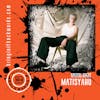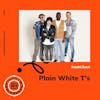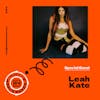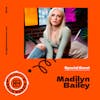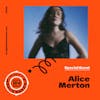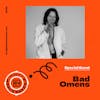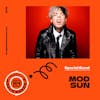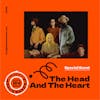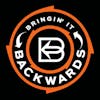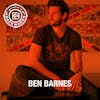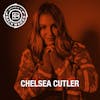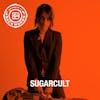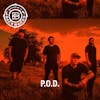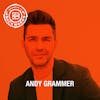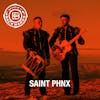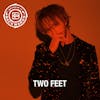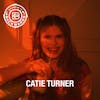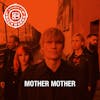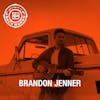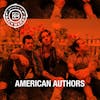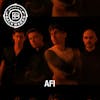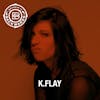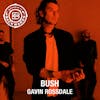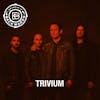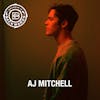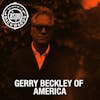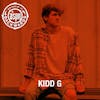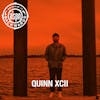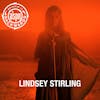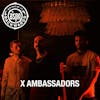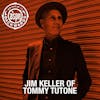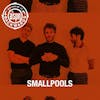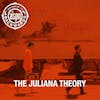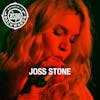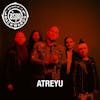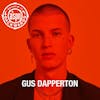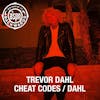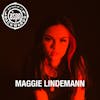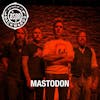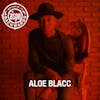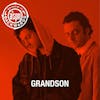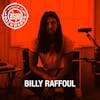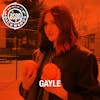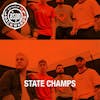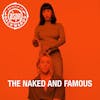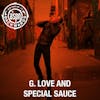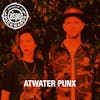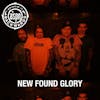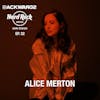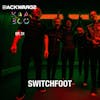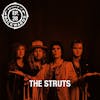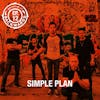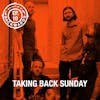Interview with Mulherin
We had the pleasure of interviewing Mulherin over Zoom video!
Based in LA but from Memphis Tennessee, the twins started their musical journey in high school playing snare drum in the marching band, where they learned music theory. It wasn’t until...
We had the pleasure of interviewing Mulherin over Zoom video!
Based in LA but from Memphis Tennessee, the twins started their musical journey in high school playing snare drum in the marching band, where they learned music theory. It wasn’t until college that they began to play the piano, guitar and hone their vocal and production abilities.
They grew up listening to everything from the Beatles and the Beach Boys to Thom Yorke and Sufjan Stevens but grew to fall in love with R&B from the ‘90s and 2000s, from the likes of D’Angelo and Dwele. The result is a unique R&B and soft acoustic pop sound that’s centered around melody, harmony, and lush vocal production.
Along with continuing to expand their songwriting skills their creativity continues to grow with each project grabbing inspiration from different parts of their lives and showing us a new side of themselves with each release. With real and emotional lyrics delve into a vulnerability that few artists are comfortable in sharing with the world.
"Better For You" is the second single off Mulherin's upcoming EP, 'Paper and Plastic 01' , that paints a heart-melting portrait of familial love and understanding in a mother-son relationship. Continuing their slower and more soulful releases, the EP is brought to a whole new level with acoustic instrumentals and a powerful message throughout all 4 singles, creating a mesmerizing and beautiful experience.
“I set out to address something that we rarely talk about in our music. These kinds of feelings can be hard to express at times, so it just felt right to write it as if it were a letter to my mom. A promise that I can be better and feel better - and so can you. We all can." - Parker Mulherin on "Better For You"
We want to hear from you! Please email Tera@BringinitBackwards.com.
www.BringinitBackwards.com
#podcast #interview #bringinbackpod #Mulherins #PaperandPlastic #NewMusic #zoom
Listen & Subscribe to BiB
https://www.bringinitbackwards.com/follow/
Follow our podcast on Instagram and Twitter!
https://www.facebook.com/groups/bringinbackpod
We'd love to see you join our BiB Facebook Group.
0 (12s): what's going on. It is Adam. Welcome back to bringing it backwards. A podcast where both legendary and rising artists tell their own personal stories of how they achieved stardom. On this episode, we had a chance to hang out with twin brothers Parker and Marshall Mulheron over zoom video Parkin. 0 (59s): Marshall grew up in Memphis, Tennessee, and they talked about how they got into music. They got into percussion and drum line at a very early age in middle school. They joined the school band, did that all the way through high school ended up attending college and new Orleans thinking that they were going to pursue a career as a marching band percussionist, maybe teach music school and Parker ended up taking a songwriting class and started to kind of get the bug for songwriting. 2 (1m 25s): He showed Marshall the song. They had a heart to heart on some family trip and decided they're going to write songs together. We hear about their journey and music, getting to Los Angeles, putting out their record blurry right before the pandemic hit and actually getting a little tour in right before the world shut down and all about their new record, which is called paper and plastic. You can watch our interview with Parker and Marshall on our Facebook page and YouTube channel at bringing it backwards. It would be rad if you subscribe to our channel like us on Facebook, follow us on Instagram, Twitter, and Tik TOK at bringing back pod. And if you're listening to this on Spotify or apple music, it would be amazing if you could follow us there as well, and maybe even hook us up with a five-star via, that'd be great. 3 (2m 10s): I appreciate your support. If you follow and subscribe to our podcasts, wherever you listen to, 2 (2m 16s): We're bringing it backwards with Mulheron cool. Well, this is about you guys and your journey and music, and we'll talk about the new music you're putting out and how you got to where you are now. Awesome. 4 (2m 28s): Sweet. 2 (2m 29s): Well, since you have a similar upbringing, obviously, where were you guys born and raised? 4 (2m 35s): Memphis, Tennessee, 2 (2m 36s): Memphis, Tennessee. And in LA. Now 4 (2m 39s): We're in LA now. Yeah, we've lived in Memphis, like born and raised, graduated high school and then went to college in new Orleans for years and then saved up back in Memphis after that for a few months and moved to LA 2 (2m 54s): Rad. I'm from Southern I'm from San Diego, but now I live actually in Tennessee. I live in south of oh, cool. 4 (3m 1s): Yeah. 2 (3m 2s): Yeah. I love it here. But I'm from San Diego. I've worked in San Francisco for a little bit on the radio and back to San Diego. And now my family and I were like, let's, let's move to music city. So we decided to take everybody across the country. And now we're in Tennessee 4 (3m 18s): Was like, what inspired that? 2 (3m 21s): Well, the podcast mainly to be honest, I mean, we're part of American songwriter magazine and there various in Nashville and it kind of all made sense to, to come all the way out here and do that. And just a lot of things. And at the time that was right when the pandemic was happening, it was in full swing. And my, I wanted my kids back in school and also there was no show. So I wasn't able to, it didn't make sense to still be in San Diego to like do the zoom thing anyway. You know what I mean? I dunno. And I just, I love it here. I think it's the best decision we ever made. 4 (3m 57s): It's great to leave the place that you're from and like create life in a different place for yourself. I feel like a lot. You learn a lot about yourself in the process. 2 (4m 7s): I love LA. I love, I love Southern California, obviously born and raised, but if I worked in music, if I was, you know, that that world I'd probably be more apt to stay there. 4 (4m 20s): It doesn't really make sense. 2 (4m 23s): Yeah, sure. Like an actor or something other than that. Well, cool. I drove through Memphis when I was coming here. Beautiful area. I didn't realize that there's is there there's two of the same. Is it Memphis? Arkansas is there was west Memphis, Arkansas, which tripped me out. I'm like it doesn't say I'm in Tennessee and then you go across this bridge and then now you're in west west Memphis, Tennessee. 4 (4m 51s): Yeah. It's funny. Yeah. It's like the river because the river is like the, the border of Tennessee river. And it's like, literally right when you cross over, like it's west Memphis, but it's Arkansas. It's not even Tennessee, Arkansas. So it's not the same county. It's a different state, but it's like west Memphis, 2 (5m 12s): West Memphis, Arkansas. So you were on the Tennessee side of 4 (5m 16s): . It's like at the very corner. So it's like Mississippi and Arkansas all like the tri-state area. And it's like, the greater Memphis area includes like horn lake, Mississippi and like south Haven and like west Memphis and like these things. But it's like, it's not Memphis though. Cause I worked, I got love for Clinton county and DeSoto county, but 2 (5m 48s): Elvis 4 (5m 52s): Three, six mafia, 2 (5m 54s): Three, six mafia and the Grizzlies 4 (5m 56s): And the Grizzlies John there right now, John red, I think he's from South Carolina, but we are quickly reclaiming. Oh yeah. We're claiming 2 (6m 5s): I have to support them. I mean, now I'm here and the only basketball team, so I'm like, oh, I'm going to have to, to start rooting for their Chrissy's that's sick. 4 (6m 15s): Right? 2 (6m 15s): Yeah. I had the Titans too. I'm like, wow. They made the playoffs like right out the bay. Well they, you know, obviously loss but 4 (6m 25s): Basketball state or at least Memphis is a basketball city. Big 2 (6m 28s): Time. Did you guys play basketball at all? 4 (6m 31s): We haven't played just like a little bit, not like high school or anything like that. There was a dude in our class who literally like went to the NBA and it was like six, eight, no way. So it was like, I came in as a freshmen, like five, four, and I saw a six, eight dude on my first class. I was like, I know you don't see that. You're like, I should be on the team, 2 (6m 54s): But wow. And then he made the NBA, 4 (6m 56s): He was in the NBA for a little bit. Like he played for the heat for a little bit. And he was on like the same G league team as Duncan Robinson, Duncan, Robinson. 2 (7m 8s): Crazy. That is so crazy. Well, you guys, you said you were in band, which is awesome. I want to back up a little bit here. How did you both get into music? 4 (7m 18s): It was kind of always a part of our lives. Like we always would sing just kind of like at home with our mom and we never like thought of ourselves as the same as, but just like sing along to stuff and kind of like realize at an early age that we had like decent pitch just as seniors. I feel like that you're kind of are born with like having an ear to an extent where it's like, you can hear like, oh, I'm singing. Like, you know, if you're just singing a song acapella or something and realizing like, oh, I'm like not singing in the right key. And being able to find the right key. But it was still like, we were never like singers were never in choir and stuff like that. We were in chorus. Chorus. Yeah. Which is like, but that's like, every kid is like, it's like horror or if music, 2 (8m 1s): Right. Did you guys, w I'm curious, there's a lot of twins in my area, which I hadn't really noticed until like recently I'm like, oh wow. There's a lot of twins. Were you guys in the same classes and everything going through school? 4 (8m 13s): No, there's no. Really? 2 (8m 16s): How are we on? 4 (8m 18s): Yeah. Yeah. From kindergarten it was like, I feel like it's a developmental thing that they're like, yeah. We want to help them establish socially, like separate from each other. Yeah. I think in like middle, it might've even been until high school. We had different classes. Like we didn't, like, I think even in high school though, for a lot of high school, it would be like, we had electives together. Like we'd obviously have band together, like a pewter class or AP classes we would have together. A majority of our classes would be separated. And like in the high school, 2 (8m 52s): A lot of the twins here are all in the same class. Yeah. I'm trying to like every, I know there's at least three sets of live, like in my neighbor, like right here. And all of them are in the same classes and none of them are, I'm trying to think. I think all of them are still in elementary school though. I don't know if anyone, any of them are in middle school, but our high school, but they're in elementary school, they all have the same. They don't split them up. Which I thought that was interesting. 4 (9m 18s): I also, when you were saying there's twins in my area, I was picturing like, people like your Eight year old friends of mine. 2 (9m 30s): Well, growing up Ali, I think there was only a couple of sets of kids around my age that were twins. Where are you the only twins at your school? Yes. 4 (9m 38s): No McKayla. Malaika. Yeah. Yeah. Yeah. There were twins who were also in the band. They were, I was thankful like there Mikayla and Malaika, they had like, kind of like the Weights when names, but aside from them, it was for sure, like, we were known as like that's wins 2 (9m 59s): Of course. Right. 4 (10m 2s): Easy branding, social. 2 (10m 5s): Oh. And the twins will be here. 4 (10m 9s): Well, when we were at a graduation and you know, it was just like, cause everyone, you know, like line up alphabetically and stuff and like, you know, it's like, you're at rehearsal and everyone sees your name get called and you go up. And there were people at rehearsal that were like, oh, there's two of y'all where like, it was like, like people thought they were just seeing the same. 2 (10m 31s): You were just the same kid was in their classes through, throughout the years. They still used, 4 (10m 37s): I never were at a football game and saw the drum line. Like you never like what? 2 (10m 43s): That's so funny. Well, with that, like when did you start playing in band? And what was I read? I thought you played like drums or snare or something. Did you both play in the marching band? Oh yeah. 4 (10m 56s): No, because we had drum lessons like early. I think I got drum lessons first and he was like guitar lessons, like elementary school, but never really like, like grabbed onto it and it fizzled out. And then sixth grade you could start like proper band class and like learn percussion. And then seventh and eighth grade, we joined the drum line and like started getting private lessons, seventh grade for snare and just like got obsessed with it. So it was like snare drum was like our thing from like seventh grade, pretty much through most of high school. And we like 11th grade through 11th grade. We were just like, that was all we were doing. 4 (11m 38s): It was like, we marched like a year of drum Corps. If you're like familiar with drum Corps, like the summer thing, we like marsh and open class quarter called Memphis sound RP, Memphis. 2 (11m 47s): Oh, they don't exist anymore. 4 (11m 49s): Oh no. It was like, it's a tough thing. It's like a nonprofit deal, but yeah, Marsha you're in Memphis sound and like, we're trying to go like the world-class route. There's this core called blue coats that our band director in high school taught. And we would like drive to auditions with him and like get callback sometimes and like get to like the last stage of the audition process, but still love to play and stuff. But yeah, that's where it started. It was like six, seventh grade. 2 (12m 16s): Okay. And it was drum line. And was that kind of it for through high school and everything? Or were you singing at this point? Are you because you kind of mentioned singing early on, but then it just became all what drums and playing 4 (12m 27s): And just like percussion stuff. Yeah, that was honestly a really helpful thing. Was 5 (12m 34s): American corn farmers, a proud and chosen profession, inspired through generations, tested resilient and committed to giving back as much as they're growing, pushing the boundaries of what's possible with every bushel while replenishing every increasingly precious resource, like the reduction of soil loss by 40%, with every acre grown in a world where sustainability matters more than ever, we need to all the help we can get. And there's no greater resource than the capable hands of American corn farmers. 6 (13m 5s): You run a business bank of Clark county. Has you covered offering cash management services to automate and simplify your business banking, streamlined digital banking and merchant payment processing. That's a one-stop solution. Plus bank of Clark offers corporate credit cards that help you optimize capital organize expenses and enhance your business. Whether you're looking to earn points faster or lower, your APR bank of Clark county has the card. That's right for you. Remember FDAC, 7 (13m 35s): Hey, it's Johnny wine. Look and feel your very best. Visit the team at cool contours. They are the number one, the CoolSculpting provider in Virginia, their award-winning team of certified CoolSculpt Dean Leite and Colton specialists work with you to create a fully customized treatment plan to achieve your dream body. Learn more@kool-contours.com. That's cool-contours.com as right by Algeria and June, 2021, CoolSculpting leads, FDA clarity, visible fat bulges, nine areas of the body. Some common side effects include temporary numbness, discomfort and swelling. 4 (14m 5s): We have like a percussion teacher that was like the assistant band director was a percussionist who played like marimba and xylophone and like all these different things. And like marimbas and xylophones are set up exactly like pianos. And so we learned all of our scales on like xylophone and stuff and like 2 (14m 23s): The notes. You could hear the notes. 4 (14m 25s): Yeah. I just knew all, I knew all my keys. So it's like, I could, like, we took music theory and took like music school. So that helped a ton. That's like, anytime anyone asks me about like wanting to make music or produce or anything, I'm just like, learn your scales. Like really? Yeah. It's so, so scales and arpeggios. It's just, and I'm sure there's like ways you could like get around that or something, but just like that, the basis of how I was like, oh, a cord is like from there. 2 (14m 59s): Okay. Wow. So from, from high school, did you go to, you talked about going where new Orleans for school did you, did you go for, did you go as a drummer or as percussionists? 4 (15m 13s): Yes. It was like, we once to Loyola university, new Orleans and when we were first going down and it was like, we were thinking, we would like, and it's like, I guess we'll like be music majors or something. And we had kind of like been a little bit like pivoting away from like wanting to just be like career percussionists or career like band directors or something. Cause I was like kind of the path on our minds at first it was like, okay. We're like in the band world, we'll like do this and saw that they had like a music industry program and then like kind of did the interview for that. And we were like, cool, like, this is what we'll do. And the first year we were like music industry, like performance track, which is like, you're still in like a bunch of ensembles where like wind ensemble and percussion ensemble and orchestra orchestra, like all these things. 4 (16m 4s): So it still was very much like we were band kids sort of like the first year, but I kind of like, I became a marketing major. I was like, I'm just going to like, make me like, do like the song, like write songs and do that stuff. Parker actually was the one who first started writing songs though. He had a songwriting class freshman year. 2 (16m 22s): Oh really? So your songwriting didn't even begin until you were both at college? 4 (16m 27s): Yep. Okay. Really like kind of started second semester of freshman year and then really started when we were like sophomores. It's like, when we really started making music, 2 (16m 36s): It would just start with that song writing class. 4 (16m 38s): It did actually, it was like logic, like for Christmas and then took that song writing class. And that was like the first time I ever tried like making music in any form, like covers before that like rough couple. Yeah. Like I think you had, I didn't really record it. Yeah. I like recorded some like Frank ocean covers on garage band. I think like the summer before freshman year I did a bad religion cover 2 (17m 8s): Religion song, 4 (17m 10s): Frank song called 2 (17m 11s): <em></em> <em></em> Frank ocean. That was doing bad religion 4 (17m 22s): Of world. So 2 (17m 24s): I was like, wait a minute. That's cool. Well, so when, when you started with, with the songwriting class, Austin, did you like after the end of that? Was it like, okay, this is something I really want to focus on. And how do you show your brother? Like in, was that like a vulnerable, like kind of terrifying experience? Like, Hey, I wrote this song, do you want to hear me show you what I wrote? Right. 4 (17m 45s): It was like, first of all, like just making music, like trying to write a song for the first time in general and just like being like, okay. Here's like lyrics. Like I guess I have to write a melody and like trying to write a melody for the first time is so hard. Just like, not even just like, but just doing anything where you're like, it just sounds like a song, you know what I mean? Cause it's like, I feel like you hear a song and you're like, okay, that's a song. And then you do something you're like, what I'm doing is not a song. I don't know what this is, but it's not a song. Like it's not kind of getting over that hump of being like, but I mean like it's honestly like it's like bad, but it's not that bad. 4 (18m 26s): Like the first things I was doing, no, that was good. It was like, when I first heard the stuff he was doing, I was like, damn, Parker's making music. I started doing that. 2 (18m 38s): Yeah. I didn't know if you're going to be like, all right, Parker, let's look, we should, we should pass and do something. You know what I mean? Like I must've been about like a moment where you kind of, I guess, as twins and siblings, that's the, if you write a song, he's the other person that could probably be the most brutally honesty. Right. Right. 4 (18m 60s): I never really was that it's like, we honestly, that's not really like our vibe. We don't really like, we are like the kind of brothers that like we're like shitting on each other or something. You know what I mean? But you'd probably, 2 (19m 12s): I mean, obviously you respect each other's opinion and you know, Marshall came to you and was like, Hey, fiery, like, yeah. Let's let you would prob would you give you I'm sure. You'd give him an honest opinion. 4 (19m 23s): Yeah. It's definitely like both sensitive people though. And we're like very like wary of that. And we're like, if one of us is like written a song that we like, it's like, we won't just be like, I think we need to throw this away or so very like, okay, what do we need to do? I think we need to rewrite the verse on this part. Or I think we should switch up the beat a little bit or something. We were very mindful of like trying to be 2 (19m 53s): Nice 4 (19m 56s): To, you know, 2 (19m 57s): Okay. That's a cool, you know, relationship that I was just thinking brothers and being like, yo, you know, like just right away, just being the most brutal it could possibly be. 4 (20m 9s): Yeah. No, I feel like we're almost even more, more like wary of it just cause we're, I wonder if it's different because we're twins and not like there's not an age gap, so you don't, you know, I'm, I'm four minutes older. I'm not like four years older. Right? Not the same like power dynamic thing. It's like we're equals and everything and like are so aware of each other's like not triggers, but things that could upset the other person or, you know, everyone's like insecurities. So yeah. I feel like probably even makes us more conscious of that and like not wanting to step on a toe and a main, 2 (20m 55s): All right. Well, so once the songwriting class starts and you know, you have the song Parker and you show it to your brother and yo, this is pretty good. Is that when you both decide, Hey, we should earn, when do you jump in Marshall and say, I'm going to write some songs out too. Or 4 (21m 10s): I feel like at first he was kind of protective of that being like his thing. It was funny because freshman year I had this very vague idea that I was going to like work in fashion. I was like, GQ, okay. This is where I'm going to design blazers or something like, and so it was like, that was like, yeah, that's my thing. I'm doing this. And then Parker started doing that and I was like, that's actually what I should do, not this. And he was like, yeah, maybe you could start like, do like your own song, writing class or something. And it wasn't until he did that whole class, like that semester. 4 (21m 53s): And it wasn't until that summer. And we were on like a family vacation, like on the beach and took a long walk on the beach together and came back from the walk and had decided to like, oh wow. And he talked about it and there was a, yeah, the rest is history, man. Okay. 2 (22m 12s): So from the walkie decide to start a project together. And do you start writing songs in what releasing them while you're still at college? Is it something you were talking to anyone else about? Or how did it all start from there? 4 (22m 26s): SoundCloud. SoundCloud. Yeah, not really. Yeah. This is like, it was like peak, like SoundCloud time, like peak like blog era, like 20 14, 20 13, 20 13 sound era. And just like, yeah, like meeting other people. Like one of the first people that I met in college who like made music, was our friend, Zach, who he goes by, Zach, Valerie is like his name, his artist's name. He's like a producer and like artists and singer as well. He had been like making beats since high school. And he was already like a really good producer. And I was just like, whoa, like he would do stuff. Like he like had like a flip phone and like recorded the closing and using it as a snare. 4 (23m 6s): And I was just like, this kid is a genius, but, and so it was really, yeah, it was just like, and just even like the music industry program there in general, it was at Loyola in new Orleans, by the way I was describing it's just like any music industry, like program like that. There's just like a ton of kids who make music and are like in bands and are like doing shows. So it's like, it was pretty easy to just go in and be like, oh, I make music now. And everyone's just like, cool. Yeah. That's dope. Like it was so inaccessible in my mind at first is like, especially high school or like any time before we started doing it, I was like, man, crazy that you can write a song. 4 (23m 52s): I can't do that crazy. You can do a show. Like I can't do that. And then it was like freshmen after freshman year and we started making music and everyone there's just shows people, throwing shows all the time. Like there's such a live music scene in new Orleans. There's so many venues of so many different sizes, like the eye and just having all these other people who made music who produced it, released it like made videos. It was just like, oh, okay, cool. Like, this is like a perfect way to make it seem accessible. Now it's just being around everyone. Who's doing it. 2 (24m 26s): And when you graduate, you move back to Memphis. Is it always the like plan to get to LA like at that point, like when, when do you decide, like, okay, let's wait. We need to get to Los Angeles to really pursue this. Or was something, did something happen that made that happen? 4 (24m 43s): Yeah. Yeah. So I did this thing called RPMA in 2015. So I guess I was first semester of our senior year, the rebel music academy. And they like, actually that just ended too a few years ago, but they like basically you submit an application and they choose a bunch of people from like around the world to go to this like two week clinic and like a city, like I did it and it was in Paris and you stay there for two weeks and go to lectures and all this stuff. But anyway, we met this woman, Joey, Angie, who ended up being our manager. And through that, she lived in LA and originally we were thinking we would move to Atlanta because we had more connections kind of in Atlanta. 4 (25m 31s): And like, it was closer to home. And then right when we met her and kind of like started getting some other little connections in LA throughout our senior year, I was like, who? You just do the big jump first, you know, like maybe we just go straight to LA instead of doing the Atlanta thing. So it was definitely from her kind of like urging and her just being like, do you guys get out of here? Now we can do that. So shout out to Joey and Jay, she definitely was like the one who pushed us off that ledge or pulled us off that ledge. 2 (26m 7s): Did she hear some of your songs or, I mean, you've obviously met the person there and then was there a song that she was like, oh man, like we can, this is going to blow up or a song blow up. 4 (26m 18s): I feel like, I feel like it was just the catalog and she really liked the song we had called hypocritical. That was all I sound, cause it was all like SoundCloud stuff, 15. I'm trying to make that stuff in the inaccessible. I'm honestly, I'm at the point now I used to be like, so ashamed of like, dude, I gotta make this stuff private. I gotta like, but it's just like, that was like seven years ago. I'm not like mad at someone going like hearing like 18 year old. He made I'm fine. Like that's a part of like my life. It's like, I dunno, it's it's not, it's not bad. It's like kind of good. I'm not mad at like, but that stuff sounds like, and it's, it's just, I feel like a thing with getting older, right? 4 (27m 1s): Instead of being, 0 (27m 3s): We got a big scratcher from the Virginia lottery could be a big hit for you. The game gives you the chance to win up to $1 million, Virginia lottery, scratchers every day wins visit a lottery retailer near you for rods and more information, visit VA lottery.com, 4 (27m 17s): Ashamed of, you know, creative output that you're like, I would never make that now. And like, yeah, you wouldn't. Cause 2 (27m 26s): It was seven years ago. You're making the same record seven years later, then there's 4 (27m 32s): A new pattern. 2 (27m 36s): Well, the first one, the first record you have out here, at least on Spotify, I'm looking at as human nature. Was that the next release after the SoundCloud world, it was, 4 (27m 45s): We have put out the song rendezvous on SoundCloud. And that was kind of just like a single that was just floating on Spotify after a while it was like the first song we were like, yeah, I guess we can like plan in this Spotify thing, whatever. I didn't have Spotify. And so like, we had already been making music for a while and it was like kind of harder to get your music on Spotify at that time. So we were just like, but it was really, it was that song around go. And then 2 (28m 14s): You ended up just throwing up on Spotify or it could, Eric got some legs on, on SoundCloud which attracted some attention or something. 4 (28m 21s): It was kind of just like the first song. Cause we had some, like some songs did well on SoundCloud, like back in the day relatively. And it was kind of just the first one that it was like, okay, I guess like at this point we should start uploading the Spotify. They, the song came out. It was like a few weeks after the song. 2 (28m 44s): Spotify became the thing that you're like, oh, we should probably get on this. 4 (28m 48s): Yeah. Yeah. It's still funny thinking about that now, but you don't get paid from SoundCloud. It was just so funny. Like people like, like all the huge like SoundCloud producers it's like are just, they were just making zero money. Yeah. So SoundCloud was making zero. So it was a weird time where everyone just making money, like there's a lot of eyes on stuff and people are, everyone's just broke. Yeah. 2 (29m 14s): Well it's interesting too, because yeah, so many artists came out of that world. Right then like you guys, for example, or like pal Fu is a big SoundCloud guy and then he had this huge hit that just happened over, you know, a year or two ago. And like it just interesting. And then it's like, the world changes when oh yeah. You know, people latch on to what's happening there and then it starts to kind of do something 4 (29m 37s): And then it kind of becomes real world. Even like Riley Miller, like Bryson tiller was like a SoundCloud guy at first kind of. 2 (29m 44s): Yeah. There's a lot. I'm trying to think of other pros. Malone 4 (29m 46s): Was the SoundCloud guy. 2 (29m 47s): Yeah. That, yeah, I know. That's crazy to think. So from there you go to Spotify, but at this point you're in LA already. Right. And in 2018, 4 (29m 58s): January, 2017 and like 2017, there was like this kind of conjecture around, you know, a mystical, like a deal. It was like in the air, it was, I took a bunch of meetings for this like deal and like negotiated terms. And it was like this whole thing. And it was like, so what human nature was like gonna come out under that deal. And then the deal just like completely dissolved. Yeah. Like around the end of 2017. And then that was when we were like, oh, damn all right. Yeah. That is crazy. And then, so it was just like kind of like, you know, pull your pants up and you're like, cool. 4 (30m 39s): That's a release all these songs that we've had that we thought we were going to have all this stuff for. And just like start like doing that indie granddaddy thing in 2018, we released like basically like a song a month. Human nature came out. It's like released like 10 or 11 songs in 2018. Just like, 2 (30m 60s): Yeah, just single, single, single until the full record was out. We'll never know is like massive. Right. So is that the first song that really launched in the, in the beginning for you guys? 4 (31m 12s): It's funny. Cause it's like, and it, and it's, I think an indication of like kind of why playlisting is like interesting and like misleading because like ever no it's been like, it's been in this one playlist called low key on Spotify for like four years straight. And so I think it's just like through virtue of just being in that playlist for so long, it was just like a steady, just like if it got plays, but it's like, no one like no fans or anyone, like no one comes up and is like, dude never is my favorite song. It's funny. It's like that it's definitely my least favorites, But it's like, it's almost when we put it out or like, I guess we put this out man, like whatever. 2 (31m 58s): Wow. That's 4 (31m 59s): Really interesting. That's so funny. And like, yeah, it's definitely like never like at a show, it's not like, oh, I found you guys through. Never know was like never that. And people are like, why didn't you play? Never. No, it's just not because, but it's just like, it's just been like for whatever reason, whoever has Spotify was just like, oh, this is a vibe I'm going to put it in if 2 (32m 18s): It's a low key vibe. 4 (32m 21s): And, but it's just, yeah, it's just like, that was like kind of an early indication. And that's really our only song to get any editorial playlist thing ever on Spotify for the record. 2 (32m 32s): Oh wow. Well then others, I mean blurry has a bunch of big songs on it too. 4 (32m 36s): Yeah. That was a lot of, that's just govern weekly, weekly discover weekly and just like algorithmic playlists on Spotify. Amazing. But, but yeah, it was just kind of an interesting indication of like, oh yeah. Playlisting, like Jessica as a song has like, you know, 10 million or Muna, you know what I mean? It's like that indicate like what songs people are like the most people are singing along to at a show or something, you know, 2 (33m 2s): It also doesn't indicate whether or not that person has any sort of like, like you could play a show. Right? I mean, like you'll hit the, you'll see the artists on the whatever to, you know, have 10 million streams on one song and maybe people just know the song. I don't know who the artist is. Right. I think you're in a better position having people not come up to you and be like, dude, never, you know, it's like, they're actually there for the other songs in your catalog. 4 (33m 27s): Yeah. It's like the difference. I remember some of our friends, they were kind of like that and it was like, they were like, yeah, we don't have like big singles or like a catalog artist. And I just thought that was like a cool way to put it where it's like, people are into you for like the whole thing. Right. That's like, that's such like a better position to be in kind of, and then like if you're that kind of artist for a while, and then you have the single, it's just kind of like, 2 (33m 48s): Yeah, you already have these, this group following you. And then you could have one massive hit or whatever. Then they're bringing 10 million stream song than everyone else is coming in and involved in it. Right. It's like, yeah, you, especially with people on like Tik TOK and all these, these outlets that are just making a hit. And it's like, like through the chart and then they've got to what, follow that up. But with no fan, maybe they made it on there, you know? Sure. Mike in their, in their basement or in quarantine and it just catches fire and some Tik TOK algorithm. And then what do you, how do they follow that? Like, are you now an artist or 4 (34m 22s): The tectonics of his show? Weird too. Cause it's like, it's so unlike all the other main social media is like, it's so different than Instagram and Twitter. And like, even just in terms of like, cause I've just like been more active on it in the past couple months. And it's just like looking where you'll see someone who's like, oh wow, this person has like 200,000 Tik TOK followers. And then like the last 10 ones they posted have like 900 views or something. And you're just like completely different. 2 (34m 54s): What I heard, I was listening to somebody talk about this. Cause it, it blows my mind. Tik TOK is still a thing I'm like trying to wrap my head around. And apparently it's because no one, I guess somebody was saying that the following on Tik TOK is more of a cloud thing than anything else because no one is really on the following part of doc. You're always on the, for you thing. So you could have a thing go nuts and maybe people will follow you from there. But the likelihood of them ever seeing another one of your videos is like slim to none. But if you land like, you know, the ones that get a bunch of, no matter what it is, they'll get a bunch of things is because Tik TOK knows like, okay, this person's content is, gets a lot of engagement. 2 (35m 36s): So we're just going to keep throwing them right in front of everybody on the thing. So it's essentially like a gigantic, like a focus group. Right. You can put a song up and you have just as much of an opportunity for it to go viral as me at my house or I mean, which is a such a cool thing, I think to super 4 (35m 54s): Interesting. Yeah. It's interesting too, for songs that blow up on there too. Cause it's, it will create, they can create, they can create a career and a create obviously like so much money if you know that like funnels to Spotify. It's also, it's the same thing where like with easy come easy, go, you know, like it's not really, you're not like creating like a dedicated fan. A lot of the times with like a random song that people happen to do like a challenge challenge. Or if it's like just a trend to like make a certain kind of video and that's the song that's under it. 4 (36m 35s): It's just, yeah, it was really interesting. There's nothing, nothing. It seems like as virality continues to be a thing, like nothing replaces getting like a true fan through like them seeing you at a live show or something, nothing is really going to like be as tactile as that. 2 (36m 55s): No, I totally agree with you because all it takes is like, you know, like we said, one person like the engagement happening, happening having on the one thing and it just goes and then what the next video you do know and care about it. 4 (37m 8s): Yeah. And then when that video is not on the, for you page and then it's just like, oh yeah, okay. 2 (37m 13s): And you got to try to get people to come over to your Spotify or come over to your website or your YouTube channel because you're not making anything on from what I understand, I don't know. I don't work there, but I've I've, from what I understand, tick-tock doesn't pay much of anything when it comes to getting views on stuff. Yeah. 4 (37m 30s): They have like the creator fund thing, but I have no idea how that works in general pay scale on that is, 2 (37m 37s): Yeah. I was listening to this chef talk about tick-tock and he has like 400,000 followers, which is really in the scheme of Tik TOK. It really isn't even that much, which blows my mind. But he was talking about how like, he'll do a video and it'll have a million plus views or whatever. And the amount of money he makes from Tik TOK doesn't even pay for the food that he just made in the video, which is like, so blows my mind. It's like a million plus people saw this and you're making absolutely nothing on it. Yeah. What a world anyway, back to you guys and your songs. I want to hear a little bit about blurry. It came out in 2020 and was that pre or post pandemic? 4 (38m 17s): Pre pre. 2 (38m 19s): Okay. So did you have a lot of big stuff planned? I'm imagining for blurry and then 4 (38m 25s): It really worked well because our, we went on tour, our friend, Zach, that we went to college with, he like has done like, well as like an Indi, I'm just like kind of like pop singer producer guy. We like went on tour with him in February, 2020 from February to like March 8th. It was February. So March 2 (38m 49s): Hate just made it right into the 4 (38m 53s): Indiana Jones. And, and so yeah, we, we toured with him for a month and it was like, literally blurry came out, like the day tour started, we be like toured with him for like a month, did like 22 shows or something. And I think that was honestly a big part of like why some of the songs did like, well from blurry, it was just like, it's crazy. Just the difference of like being it's like, cool. I'm in front of like two to 300, maybe 500 people a night, like 22 times. And just like watching that, like watching your like Instagram, like every night, it's just like, cool. We got 40 followers. That's amazing. Yeah. In person, you know, 2 (39m 32s): People that 4 (39m 33s): Care, it was like, that was huge. And like that wasn't even like a huge tour, but it was just like that the real life thing. It's crazy how like how you feel it. And you're just like, oh, this is real. Like, you know, like after shows, you'll see, it's like, oh, like I can see like this many more people are listening on Spotify right now. You know what I mean? Right. 2 (39m 57s): Yeah. Versus not just having it out there and maybe getting playlist. 4 (40m 1s): Yeah, exactly. You know, that was huge. But it did, there were still other plans for the rest of the year that got completely not doing like headline headline show. Cause we did a headline show after human nature in LA that like surprisingly like sold out. It was like a one 50 cap room, but still, it was like, this is crazy. 2 (40m 24s): And LA, when there's 10 billion other things happening that same night, 4 (40m 28s): I was just like, and I'm not a real artist. I can't believe it was cool. Yeah. So we had definitely had plans to do, you know, we had like a two 50 cap room. It was like the Moroccan lounge in LA. And we were like, we had the date. We were like, it was going to be in September, which was obviously completely like, right. But yeah, that, thank God we got that tour. It's still insane to think we were in, 0 (40m 56s): They hit a big scratcher from the Virginia lottery could be a big hit for you. The game gives you the chance to win up to $1 million. Virginia lottery scratchers everyday wins. Visit a lottery retailer near you for rods and more information. Visit VA lottery.com. Offer deadline. 8 (41m 12s): Welcome to the housing market. I'm with Redfin and I'm here to help, but I need to sell my house. Great. Right. Then charges a 1% listing fee when you buy and sell with us, which is more than half off the usual fee and saves you an average of $8,400. Oh wow. Is that all? Yup. I'm kidding. You had me at 1%. Want to win? So with Redfin it's real estate done right 9 (41m 33s): Offers in five minutes, average savings has Redfin refund. Plus 1% listing fee, subject to minimums, not available in all areas. Learn more 10 (41m 40s): At LensCrafters. We value expertly tailored eyecare, provide state-of-the-art eye exams, offer a wide assortment of designer brands and high quality lenses. Because everything we do at LensCrafters is for every site that makes your life special. We offer 50% off lenses with frame purchase shop in store and online book, your annual eye exam. Now on lenscrafters.com LensCrafters because sight eye exams are available at the independent doctor of optometry at are next to LensCrafters. Doctors in some states are employed by LensCrafters offer valid to April 3rd, see associate for detail 4 (42m 11s): Rooms full of people. We are taking pictures with dozens of people after every show. 2 (42m 18s): Yeah, exactly. Exactly. No idea. It's so bizarre 4 (42m 24s): At all. 2 (42m 25s): Well, talk to me about this new record paper and plastic one. Well, real quick, I'm just going to ask the stupid generic question. Is there a two? Oh yeah, 4 (42m 33s): There is. I 2 (42m 34s): Figured, well, let's, let's talk about one. So paper and plastic one. 4 (42m 39s): This is pretty much, yeah, you can start. Oh yeah. This has been songs that we've been a lot of times when we made projects, it was like, this was blurry and it was kinda like this with human nature, we kind of just are making music and then you kind of look up and you go, oh, we have some songs here. We could, these kind of fit together. These kind of fit together. And the paper and plastic, one songs kind of had like the more, you know, organic feeling, a little more of like that wooden texture and like they all kind of have a guitar 2 (43m 16s): Acoustic vibe on it, 4 (43m 17s): For sure. And so it was like, okay, these kind of feel like a thing. And it was fine. Like at that point once we were like, okay, these are the four songs to be like, okay, we're going to wrap these up. And kind of like being able to know that, okay, these are all going to be on the same thing. How can we add instruments to them to kind of make them even that much more cohesive. There were like certain textures that we add and we were finishing all of them to like, bring that much more together, which makes me even more excited to like, once these, both of these projects are out to do an album and from the beginning, be like, okay, we're like making an album. Cause we never had like done that. It's just kind of like we make stuff and then you group it afterwards. 4 (43m 58s): But like, and finishing this and like the next one, it's kind of cool to like, realize like you're moving with the intention of like all of these are together and trying to work towards that end. But yeah, it was a lot of these were, I guess all of them were really like pandemic songs. So it was like the post pandemic Mulheron stuff that was like, you know, labored over. And I dunno, it was a weird time, obviously like 20, 20, it was like a crazy right. And they kind of like come out of that and like make stuff and finish music was like a huge, huge positive for us. 4 (44m 44s): Just even work-wise and like confirming to yourself that you're a creative person and that you are an artist. And cause you know, you question all that stuff when, after a while you're just kind of like in the house and then you don't really know what you want to say. You don't really know like what you want to do. And it's like, it felt like all this momentum we had just stopped. So it was like, it was a really strange time for a little bit. And honestly, like, I feel like finishing this music was like very good for us for just like having a goal and like moving and creating momentum for ourselves. Again. 2 (45m 20s): Would you say that the being inside had any or you know, being stuck in this pandemic had any effect on the record or the songs you were writing? 4 (45m 28s): I've probably, I guess just in terms of being more, even more introspective, I feel like we're always introspective and stuff, but what do you think? Yeah, I feel like, yeah, probably like implicitly, but it's not like, they're not like pandemic reference. They're not referencing, 2 (45m 48s): I guess my, I only phrase my question back. Like when you, when it comes to like the production or lyrics, like you probably had a lot of time to sit and listen to the songs that you wrote a bunch of times before it was like, okay, we're, you know, maybe we're not going to release it right now because of the pandemic or we can't tour it. So we're going to hold onto it. Like, did you have a lot of time to sit and like over critique or any like that didn't come into play at all? 4 (46m 13s): And I'll say honestly, what, what helps kind of break through that? As we started kind of doing sessions with friend of ours, friends of ours who are like producers in the sense that like they produce for other people. And so getting to like work with other producers and kind of like, just cause we haven't really done that many like sessions with other people or like made music with other people that much for like, you know, how long we've been making music. And it was like starting to do that. And like with like people who are like real producers, like for a living or producers and you know, make good money doing it and just seeing how other people work, it was kind of just like, oh cool. Yeah. And kind of like definitely informed the way that we were like we've have been finishing stuff and yeah. 4 (46m 60s): So honestly like if anything that like helped like, like peeing kind of like locked it down and then starting to kind of like just hearing their like work with other people on, you know, and even stuff for us, but just like, it'll be like, oh, we're going to do like, you know, some beats to like submit for X artist or whatever. And just doing that, like really helped us like kind of approach production in a more methodical way and like finish these and, and like, especially with the next one even yeah. It's like a little bit, even a little more. Yeah. No, I feel like it's just getting to a point where you listen to something and being able to be like honest with yourself where it's like, oh, I think like this part is boring or something or like, I think we need to, like, we could cut this down. 4 (47m 51s): Like we can like make this more concise or whatever, because when you're doing like a lot of this stuff that we were trying to like dip into is like the pop world kind of, or like the pop R and B world or like these different things where you're trying to like catch people's attention and a failure. It's just opening your ears up to like keeping something, like keeping the ball rolling with the song. And that's like, yeah. That and being able to just be honest with yourself and that, that doesn't mean the song is bad. Like if you're like making something with someone else and they're like, yeah, I think like this is dope, but I think we need to like add some stuff here. So it doesn't like lose steam or something. 4 (48m 31s): And like, if you're by yourself and you're like, like before I would just be like, God, this song is boring. I guess it's, there's something. 2 (48m 39s): Nah, if somebody to kind of bounce ideas off or to throw their, you know, create an idea in there, 4 (48m 47s): Or even just like with yourself, being able to know like, oh, this idea isn't bad. I just need to like, like change this beat at this part or something just to be able to have, like, I think it's just like opening your ears up and listen to music better. 2 (49m 2s): Okay. Well, I mean, obviously there's a second part to this record. The first one is like you were saying earlier, acoustic driven in the sense, like, is that kind of the vibe on the second half or is it change up quite a bit? And is that why you were able to kind of clump these together and paper and plastic parts two together? 4 (49m 21s): Yeah. It's like the, as paper and plastic. So it's like assuming that the first one is paper and then the second one is like plastic and it's like definitely more like synthetic sounds and like, like rom heavy, more like some like drum stuff and like just the production is more like synthetic sounding and like, you know, there's like more like some songs I buy more tuning on the vocals and stuff. Yeah. It's just, yeah. It's kind of like, yeah, just a different like kind of darker vibe, a little bit. Yeah. Different world, man. I'm excited to, you know, move because some of these songs still aren't done. 4 (50m 0s): Obviously I was still like trying to figure out, okay, what does this one need? Like, how do we really double down on it? Oh, it's kinda something with paper and plastic where it was like, okay, like better for you as the first time we've ever gotten strings on. And it was like, this is a world, like let's double down on this world. And like, let's actually get real strings on it. And like with the song on paper and plastic is like somebody I know I've missed. It's like, okay. Like it kind of has a live feeling. Let's actually put live drums on it. Like it's a double down on that. So like for this one, it's kind of the same thing where we're at the point where it's like, okay, we're doing like, we're toying with these like different ideas and like sampling ourselves and like having a feel like a little more, like some of it feels like maybe a little more dance, music influence or some of it feels a little more like choppy, choppy. 4 (50m 57s): And like, so it's like, okay, like how now we're in the stage kind of with that. It's like, okay, we're doing it. Like let's really do it. Like how do we double down on like those ideas? Got it. 2 (51m 7s): Well, awesome. I, I guess I love the F the record, the one that you just put out. So I can't wait to hear the second one. And I appreciate you both so much for doing this. Thank you 4 (51m 18s): For having us, man. It was great talking. Yeah. 2 (51m 20s): I have one more quick question and I want to get an answer from both of you if that's cool. If you have any advice for aspiring artists. 4 (51m 27s): Yeah. We were just talking about this the other day. I think just like collaborating with people that you think are good or just like collaborating in general is so this is maybe just maybe not underrated at all. But to me, it's funny because I just didn't do it for so long. And I think it's just, I would say just, don't be afraid to like put yourself out there and collaborate with people. Even if you think you're going to like, cause I think it can be easy to like get in your head and be like, oh, like, but then if I do like a session with this person and we make a bad song, they're going to think that I'm bad. But like I was, like I say, just like get over that feeling as soon as possible. 4 (52m 10s): And just like try working with other people and seeing how other people work. Like how other producers like writers work and yeah. Just be open to that. Even if you still just want to make music and like mostly by yourself, like open up and try collaborating with people sometimes because it can like completely change the way you think about your process. That's that's, that's huge, man. I would also on like the flip side of that, just make stuff. If you want to make music, like start right now, like start doing it. Like you can get logic if, if you're not like a guitar player like that, or you're not a keys player, you can start learning. 4 (52m 52s): And then even just finding core progressions online and just dragging into garage band, like there's stuff you can do to like really just like start the ball rolling and like, just start trying to do it and figuring out your own way. And like for sure, collaborating, collaborating with other people is something I wish I had done more early on. And I definitely agree with that, but also like just trial and error for yourself and kind of figure out what works for you and figure out your voice as a producer and your voice as a songwriter. And like, you're only going to do that from actually actually doing it. You know, a lot of people like the idea of, oh man, like I want to be an artist. 4 (53m 32s): Cause they like how that sounds. And they like the idea of being able to post about their music coming out or something, because I know a lot of people who are like, man, I want to do that. And it's like, you can do it like right now, like today you can start. And like, and I know that can be hard. It can seem like such a far off like, cause that's how I felt. I was like, I can't write a song, but it just took getting to the point of making like the first one and making the second one. And even if it sucks, like you don't have to release stuff for a long time and just like starting like now and figuring it out.
Featured Episodes
Here are some great episodes to start with. Or, check out episodes by genre.
























